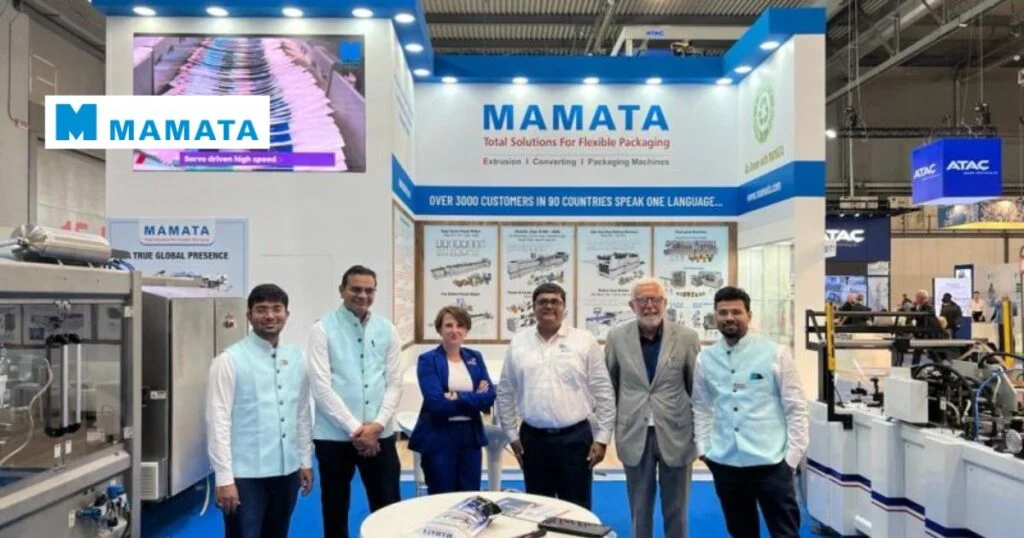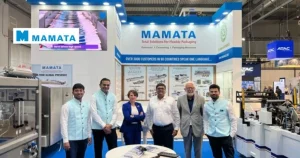Mamata Machinery IPO Allotment: 5 Key Insights What Investors Need to Know

Table of Contents

The Mamata Machinery IPO (Initial Public Offering) has been the talk of the town for many retail and institutional investors in India. As one of the most anticipated IPOs in recent months, Mamata Machinery’s public offering has generated a lot of excitement and curiosity. Investors are keen to know whether they will be allotted shares in this rapidly growing company, and what factors influence their chances of receiving an allotment. In this blog, we will explore the Mamata Machinery IPO allotment process, its significance, and provide five key insights into what investors need to know to make informed decisions.
1. Understanding the Mamata Machinery IPO
Mamata Machinery, a leading company in the manufacturing of heavy-duty industrial machinery, has made its debut in the capital markets with a public listing. The company offers high-quality products used in diverse industries, including construction, agriculture, and mining. With its consistent growth over the years, Mamata Machinery has positioned itself as a key player in its sector.
The IPO is designed to raise capital for business expansion, reducing debt, and strengthening its balance sheet. The offering has attracted significant attention, as Mamata Machinery’s business prospects, strong financial track record, and reputation in the industry make it a promising investment opportunity. As a result, many retail investors and institutional buyers are looking forward to participating in the offering and getting a chance to own a stake in the company.
2. The Allotment Process: How Does It Work?
The IPO allotment process refers to the distribution of shares to investors who have applied for the IPO. When a company launches its IPO, investors submit bids through a process called “application,” in which they specify how many shares they wish to purchase and the price at which they are willing to buy them. Once the IPO subscription period closes, the company, along with its lead managers and the stock exchanges, determines how many shares to allot to each investor based on a variety of factors.
In the case of Mamata Machinery’s IPO, the process follows the standard procedure followed for most IPOs in India:
- Bid and Application: Investors can apply for shares during the IPO subscription period, typically online or through their brokerage account. The price band is specified, and investors can place bids either at the upper or lower end of the band or anywhere in between.
- Oversubscription and Allocation: If the IPO is oversubscribed (more demand than supply), the company will not be able to allot shares to all applicants. In such cases, the shares are allotted on a pro-rata basis, meaning that the number of shares allocated to each investor is proportional to the number of shares they have applied for.
- Lottery System: If the IPO is extremely oversubscribed, a lottery system may be used for allocation, where investors are randomly selected for allotment. Retail investors typically have a better chance of getting shares as compared to high-net-worth individuals (HNIs) or institutional investors.
- Refund Process: If an investor does not receive an allotment, the money they invested is refunded, often with interest, depending on the timeline specified by the company.
Understanding this process is vital for investors, as it helps them manage their expectations when they apply for shares. Not all investors will receive an allotment, and even those who are allotted shares may not get the exact number they requested.
3. Factors Influencing IPO Allotment: What Increases Your Chances?
The allotment process for IPOs is influenced by several factors, some of which can increase or decrease an investor’s chances of receiving shares. Here are some key factors that influence Mamata Machinery’s IPO allotment:
- Oversubscription: One of the most important factors that affect the allotment process is the level of oversubscription. If the IPO is highly oversubscribed, the chances of receiving an allotment decrease. For example, if Mamata Machinery’s IPO sees 10 times oversubscription, only one in every 10 applicants might receive shares, and the number of shares allotted will be proportional.
- Retail vs. Institutional Bids: Retail investors (individuals applying for smaller amounts) generally have a better chance of allotment compared to high-net-worth individuals (HNIs) or institutional investors. Retail investors are typically allotted up to a certain percentage of the total issue size, and the remaining shares are allocated to HNIs and institutional buyers.
- Application Size: The number of shares an investor applies for can also influence the allotment process. For instance, those applying for smaller amounts have a better chance of receiving at least some portion of their application, while larger applications may face a lower probability of full allotment, especially in the case of oversubscription.
- Lottery or Pro-rata System: In some cases, particularly in highly oversubscribed IPOs, allotment may be determined through a lottery system. For an individual investor, this means that the chances of winning are based on luck. Alternatively, a pro-rata system may be used, wherein shares are distributed according to the percentage of the total demand.
- Early Application: While the allotment process remains largely independent of when investors apply during the IPO period, applying early can still be beneficial for receiving updates and ensuring timely processing.
4. Impact of the Allotment: What Does It Mean for Investors?
Receiving an allotment in an IPO can be a significant milestone for any investor. For many retail investors, an IPO allotment provides a chance to participate in the growth of a promising company from its early days on the stock market. If Mamata Machinery performs well post-listing, investors who have been allotted shares could stand to benefit from capital appreciation.
On the other hand, if an investor does not receive an allotment, it is important to remember that IPOs are not the only opportunity for gaining exposure to good companies. Investors who miss out on the allotment can always look to purchase shares once they are listed on the stock exchange.
Furthermore, it is crucial for investors to assess the potential risks and rewards before investing in any IPO. While Mamata Machinery’s growth prospects might appear strong, it’s important to carefully evaluate factors such as the company’s financial health, industry outlook, and competitive positioning before deciding to invest.
5. Conclusion: Mamata Machinery IPO – Is It Worth It?
The Mamata Machinery IPO allotment process can seem complex, but understanding the ins and outs of how shares are allotted can help investors make more informed decisions. From the factors that influence allotment to the potential benefits and risks of investing in the IPO, this offering presents an exciting opportunity for those looking to tap into the growth of India’s industrial machinery sector.
For investors, it is crucial to stay patient and strategic, applying for shares during the IPO period with realistic expectations. While an allotment isn’t guaranteed, those who manage to secure shares may find themselves positioned for long-term financial success. Always conduct thorough research, and if necessary, consult with a financial advisor to ensure that the Mamata Machinery IPO aligns with your investment goals and risk tolerance.
The Mamata Machinery IPO could be a defining moment for many investors, and with the right approach, it offers the chance to participate in the company’s promising future.

For more interesting stories: Senores Pharmaceuticals IPO: 7 Reasons Why It Is Set To Disrupt The Healthcare Sector in 2024 | Mamata Machinery IPO Allotment: 5 Key Insights What Investors Need to Know |








